Visiting Lassiters, then homeward bound
October 1-3, 2017
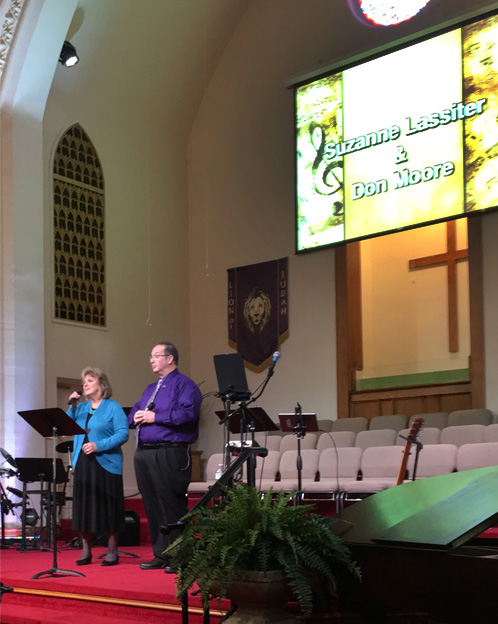 | On Sunday morning, October 1, we attended First Baptist Church of Newport, the church in which Rod was raised and baptized. Suzanne and the minister of music, Don Moore, sang a very nice duet in the service. 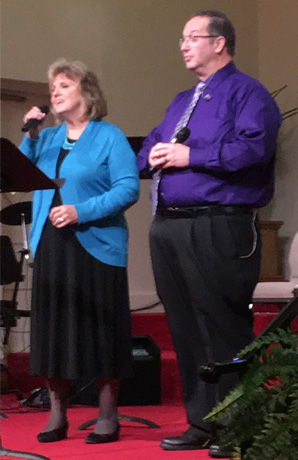 |
The whole local Lassiter family is engaged in the church. Bobby, Brent and Mandi have leadership positions, Suzanne is pianist and teaches a children's Sunday School class. Garrett plays the drums for the praise team. Dorothy attended there, and also Genevieve Lassiter, Bobby's Mother.
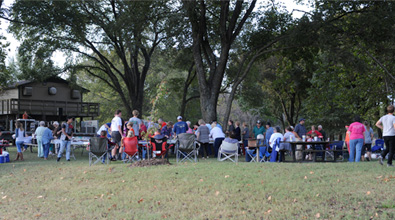 | 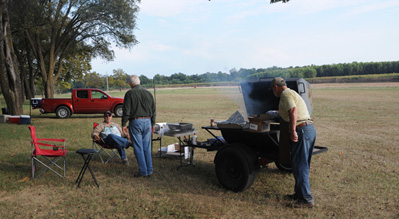 |
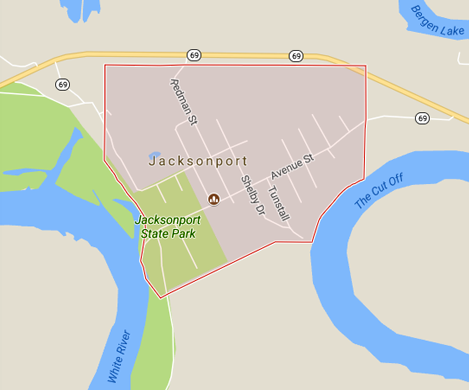 | For the second time, we managed to visit with Bobby and Suzanne on the day when the First Baptist Church of Newport had their "meet me at the river" churchwide cookout and gospel concert. The men manned the grills and cooked up hamburgers and hotdogs alongside the White River at the Jacksonport State Park. |

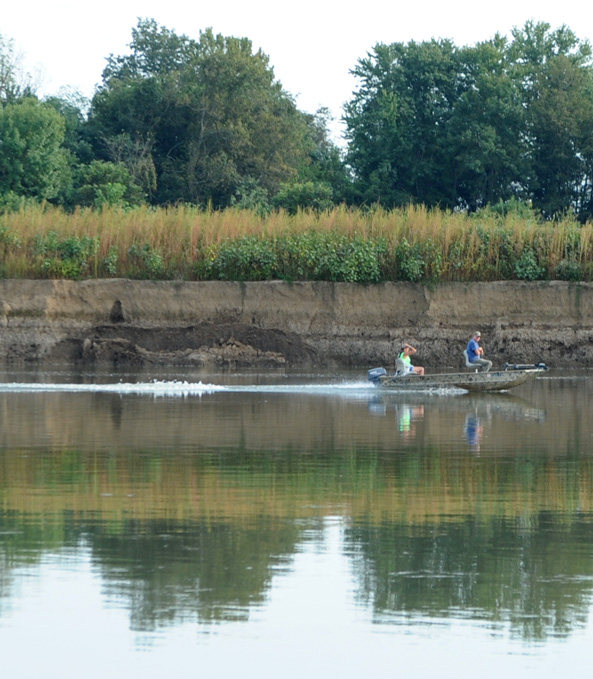 | I enjoyed walking along the peaceful White River, of which I had many memories from my childhood. I enjoyed seeing the boat come along. But one memory that was rekindled was not so pleasant - that of the sandburrs that deviled us as we walked barefoot on the farm. 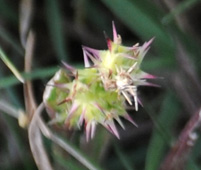 The sandburrs were even sharper than I remembered! Several of them actually stuck into the hard rubber of the bottom of my shoes. |
We enjoyed the picnic supper with the church folks including the Lassiter family, who all attend there. Then we had a gospel quartet concert which extended into the twilight and gave us a beautiful view of the sun through the clouds. Then as we were leaving, we got a nice sunset over the river. | 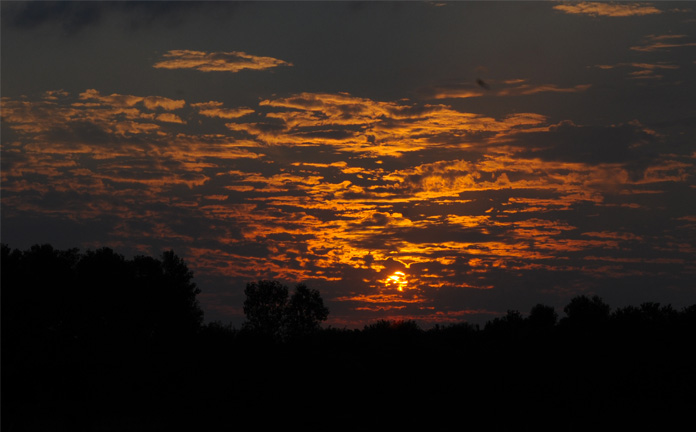 |
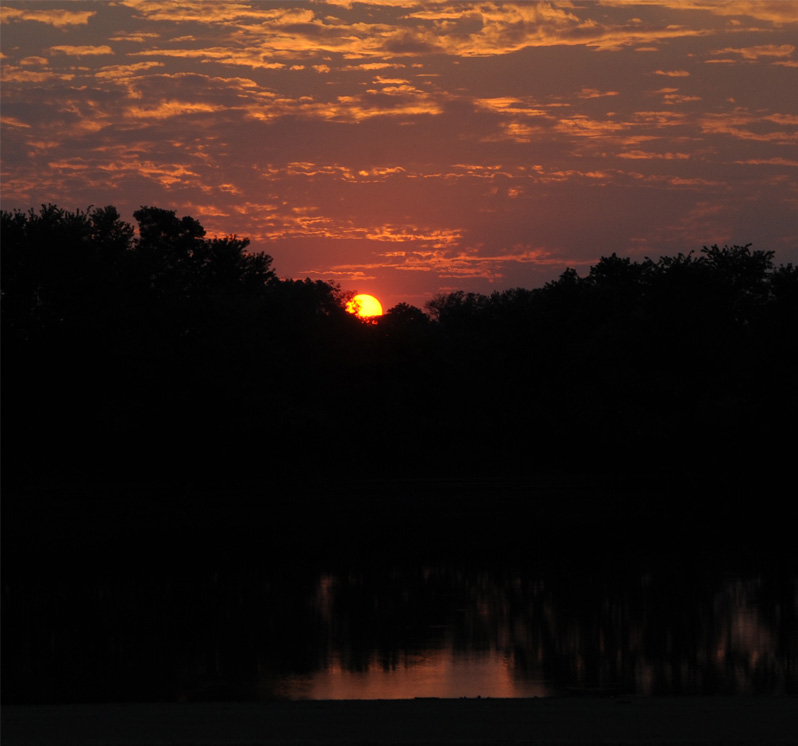
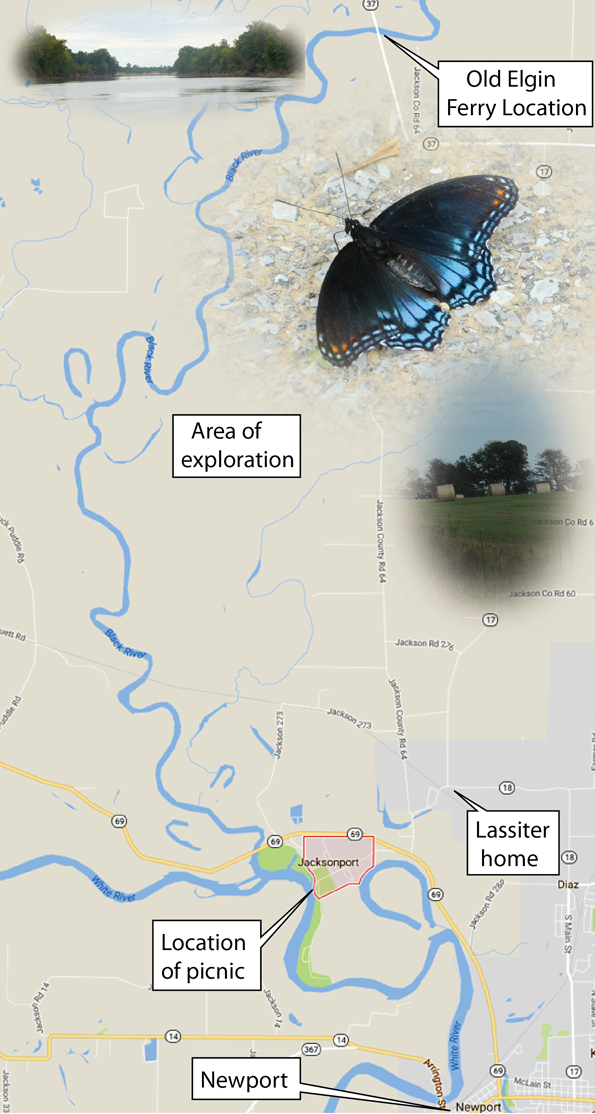 | On Monday, Bobby took me exploring up on the land along the Black River north of their home. Brent and Bobby have spent a good bit of time up in that area in recent years. Not only have they planted some up there, Brent has overseen crops of other farmers. In addition to farming, it is a place for duck hunting. Bobby showed me their duck blind, which overlooks a field in which there is a pond during duck season. In fact, if there is not enough rain to produce the pond, they have constructed a pumping system to fill the pond, and control the runoff from it so that they can keep it during duck season. 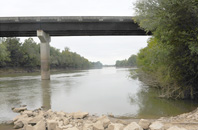 I asked about the location of the old Elgin Ferry, so he took me up to see the highway bridge that is now there, and pointed out the location of the old ferry. I told him about driving one of Jimmy's old trucks down to that ferry when I was probably 14. I had been driving tractors, but it was a challenge to drive the truck down the slope to the ferry since it didn't have syncromesh to first gear, and I had to stop on the slope to get it into first and creep down the slope to the ferry. |
We poked around on the boatramp above the bridge and looked at the place upriver where Bobby remembered the old ferry being located. This nice butterfly was landing on the concrete ramp. It's proboscis was out in this photo, maybe getting minerals from the surface - that's what I read about them landing on the sand. The nearest thing I can find in the way of identification is the "red-spotted purple" butterfly illustrated on Plate 24, p91 in Peterson's Field Guide to Eastern Butterflies. Also pg 278 for description. It's range definitely includes Arkansas. | 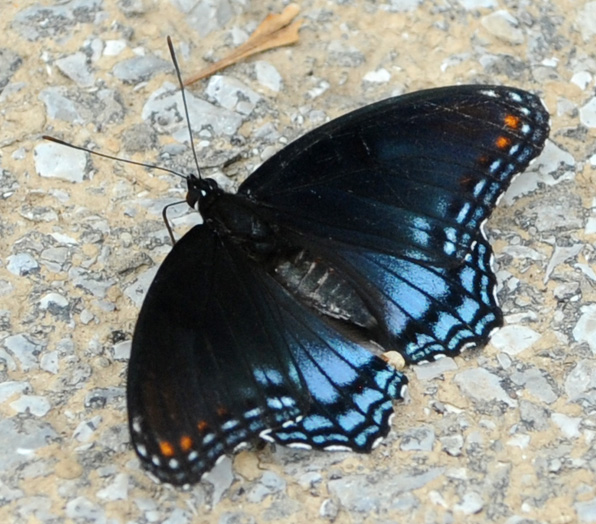 |
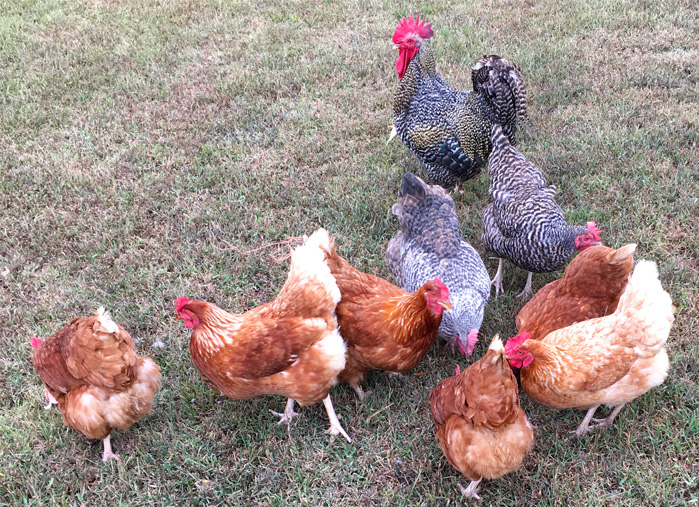 | Bobby's rooster does keep the hens together and watches over them. The rooster fusses at me if I get too close. |
I enjoyed hanging out with Bobby in the fields and around the barn as he collected the eggs and took care of the chickens. Brought back lots of memories. |  |
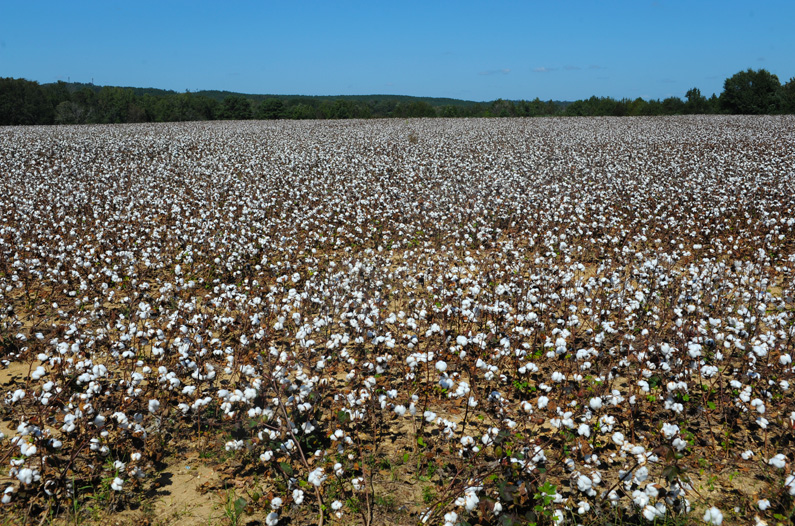
We very much enjoyed our visit with Bobby and Suzanne and had a lot of meaningful conversations. We had breakfast with them on Tuesday morning and headed back toward Georgia. We saw a lot of cotton in Arkansas and along the trip through Mississippi and Alabama. But this was the most dramatic field of cotton. It was behind a service station in Hamilton, Alabama just across the line from Mississippi as we traveled along the I-22 corridor.
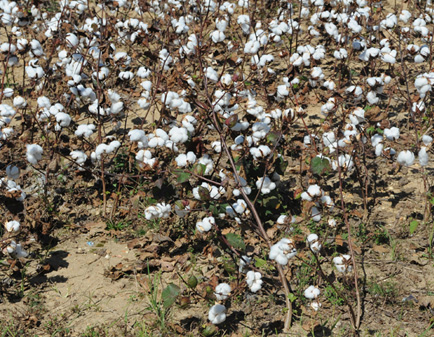 | 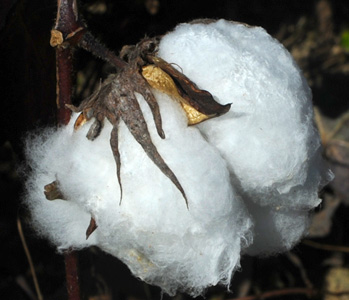 |
We enjoyed watching a lot of rice and soybeans being harvested as we crossed Arkansas. There was also a good bit of cotton close to Memphis. Cotton was more common in Mississippi and Alabama.
| National Conference on Christian Apologetics |
2017